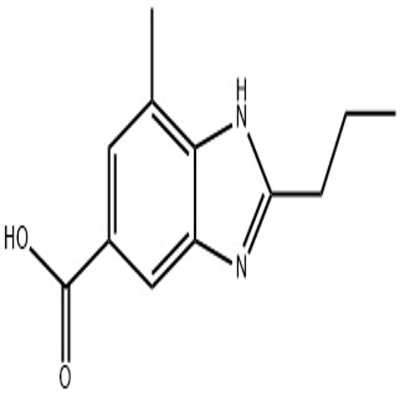-
Categories
-
Pharmaceutical Intermediates
-
Active Pharmaceutical Ingredients
-
Food Additives
- Industrial Coatings
- Agrochemicals
- Dyes and Pigments
- Surfactant
- Flavors and Fragrances
- Chemical Reagents
- Catalyst and Auxiliary
- Natural Products
- Inorganic Chemistry
-
Organic Chemistry
-
Biochemical Engineering
- Analytical Chemistry
-
Cosmetic Ingredient
- Water Treatment Chemical
-
Pharmaceutical Intermediates
Promotion
ECHEMI Mall
Wholesale
Weekly Price
Exhibition
News
-
Trade Service
1-Ethyl-7-nitro-1,2,3,4-tetrahydroquinoline, commonly referred to as ENQ, is a organic chemical compound that is used in various applications in the chemical industry.
It is known for its unique chemical properties, such as its ability to act as a catalyst, a solvent, and a stabilizer in various reactions.
However, the use of ENQ has also raised concerns about its safety in the workplace and the environment.
One of the main concerns with the use of ENQ is its potential to cause skin irritation and allergic reactions.
The compound is classified as a Category 3 carcinogen by the International Agency for Research on Cancer (IARC), which means that it is possibly carcinogenic to humans.
It is also known to cause respiratory, skin, and eye irritation, and has been known to cause mutations in lab animals.
In order to minimize the risk of exposure to ENQ, it is important to take appropriate safety precautions when handling the compound.
This includes wearing protective gear such as gloves, goggles, and respirators, and ensuring adequate ventilation in the work area.
Additionally, it is important to follow proper storage and disposal procedures to prevent leaks or spills.
It is also important to note that ENQ is highly flammable and should be stored away from heat and ignition sources.
In the event of a fire, it is important to use appropriate firefighting techniques and equipment, as ENQ can be difficult to extinguish.
In addition to the risks associated with handling ENQ, there are also concerns about its potential environmental impact.
The compound is known to be toxic to aquatic life, and can cause long-term damage to ecosystems if released into the environment.
It is important to follow proper disposal procedures to prevent contamination of soil and water.
Despite these risks, ENQ is still widely used in the chemical industry due to its unique properties and the benefits it provides in certain applications.
However, it is important to weigh the potential risks against the benefits and take appropriate safety precautions to minimize the risk of exposure.
In conclusion, 1-Ethyl-7-nitro-1,2,3,4-tetrahydroquinoline is a important chemical compound that is widely used in the chemical industry.
However, its use has raised concerns about its potential to cause skin irritation, allergic reactions, mutations and environmental pollution.
It is important to follow the safety guidelines and take appropriate precautions to minimize the risks associated with the compound.
The company should also invest in the research and development of safer alternatives to minimize the negative impact of the chemical on the environment and human health.





![benzyl N-{2-[4-(4,4,5,5-tetramethyl-1,3,2-dioxaborolan-2-yl)phenyl]ethyl}carbamate](https://file.echemi.com/fileManage/upload/goodpicture/20210823/m20210823171124543.jpg)

